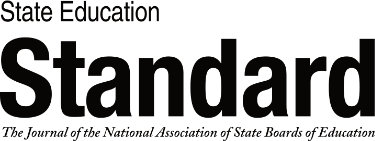A central lesson driven home by the struggles of schools around the globe during the pandemic is that education systems are inadequate to meet society’s future needs. It is time for systems that are learner-centered and flexible enough to meet the needs of all students—from those with disabilities and diverse learning needs to those who are gifted and high performers. The framework of Universal Design for Learning (UDL) provides a stable, evidence-based foundation for this vision of the future of education.
Reenvisioning the Future with Universal Design for Learning
Also In this Issue
Ensuring Students with Disabilities Leave School Ready to Succeed
By Kristin K. Liu, Martha L. Thurlow and Sheryl S. LazarusState boards can watch policies for red flags that hold students back.
Debunking Myths about Students with Disabilities
By Karla Phillips-KrivickasState policy should confront the pervasive low expectations that the outcomes reveal.
Supporting Students with Disabilities throughout the Year
By Angela Johnson and Elizabeth BarkerThe data point up a need for services that extend beyond the school year.
Reenvisioning the Future with Universal Design for Learning
By James D. BashamBuild a system that supports each student rather than a mythical average one.
Supporting English Learners with Disabilities
By Drew S. Fagan and Luis Javier Pentón HerreraEquitable education means overcoming challenges in identification, staff training, and funding.
Understanding Special Education Teacher Shortages
By David Peyton and Kelly AcostaState policies meaningfully affect recruitment and retention.









 i
i
 i
i